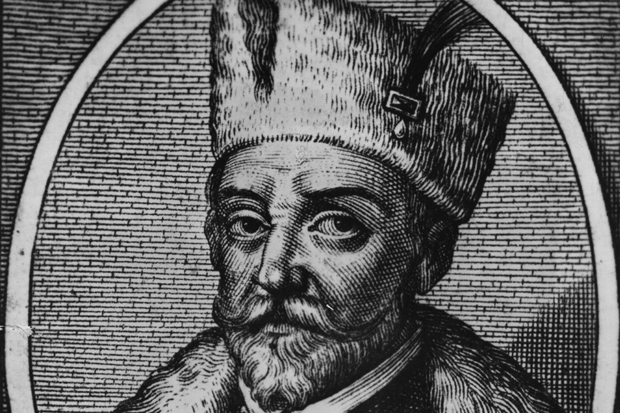A hoo-ha has broken out in the city of Oryol, south-west of Moscow, over a proposal by the officials there to put up Russia’s first ever public monument to Ivan the Terrible. This 16th-century czar had some major achievements to his credit — particularly the expansion of Russia’s territory and welding it into a united state — but seems nevertheless to deserve most of the excoriation that history has bestowed on him. There is some uncertainty about whether he actually killed his son and heir as is usually claimed; but he was definitely drunken and paranoid and given to wild swings between spasms of violent cruelty and bouts of self-loathing and repentance (he was a devout Christian). He enforced his authoritarian rule through the oprichniki, gangs of black-clad horsemen, who had no compunction in repressing any perceived disloyalty to the czar with torture, murder and massacre. It is not surprising that many residents of Oryol oppose the erection of the monument, even though the head of the Russian Orthodox Church, Patriarch Kirill, surprisingly supports it.
However monstrous his crimes, Ivan the Terrible has nevertheless one important virtue in my book: he was very kind and hospitable to a man called Chancellor. I was brought up to believe that Richard Chancellor, the navigator who ended a voyage at Archangel in the White Sea while on a mission in 1553 to seek a northeastern passage to Asia, and from there travelled by land to Moscow to meet the czar, was one of my most distinguished ancestors, but I find there is no evidence of any kinship.
Nothing is known about Richard Chancellor’s background except that he hailed from Bristol, while my ancestral family was by then long based in Scotland, from which no members would leave for more than 400 years. While Richard was learning his seamanship in a port in south-west England, my ancestor William Chancellor, a devout Roman Catholic, was a Lanarkshire laird busy supporting the doomed cause of Mary, Queen of Scots. There was unlikely to have been any connection with these two Chancellors, but from habit I still regard Richard as my most celebrated forebear.
Richard Chancellor was the captain of one of three ships which set out in convoy to seek the northeastern passage, a venture sponsored by the Company of Merchant Adventurers. Two of the ships were lost in storms north of Norway, but brave Chancellor proceeded in the Edward Bonaventure against the advice of some Scottish fishermen who had warned him of great dangers ahead.
Learning of a British vessel’s unprecedented arrival at Archangel 600 miles north of Moscow, Ivan the Terrible sent for its captain to come and see him. Chancellor, with companions from the ship, travelled by horse-drawn sleigh to the Russian capital, which he found much larger if more primitively built than London, but where they were sumptuously entertained by the czar in his own far-from-primitive imperial palace. The generosity of his hospitality was recognised by Queen Mary in a letter delivered to him later: ‘Your Majestie did call Chancelour and certaine of his company to your emperiall presence and speech, entertayned and banqueted them with all humanitie and gentleness.’
The reason why Ivan didn’t torture or roast Chancellor but treated him instead with great humanity and gentleness was that he wanted to establish trade links with England. Trade between Russia and western Europe was then monopolised by the Hanseatic League, an informal federation of 70 independent cities of northern Europe that agreed on trading policies and tariffs and would if necessary provide troops to enforce them. It was a kind of miniature mediaeval European Union, and both Russia and England had Brexiteer instincts to look out beyond this organisation for bilateral trading opportunities elsewhere.
Ivan had entrusted to Chancellor a letter to the English monarch inviting English merchants to Russia and promising them free trade without hindrance. When he returned to Russia a year or two later, Chancellor brought with him the reply from Queen Mary promising reciprocation to Russian traders in England. He died on the return from his second Russian trip in a shipwreck off Aberdeenshire. I feel that, despite his unlovable characteristics, Ivan should be celebrated with a monument in Oryol, if not only for his service to Anglo-Russian trade relations but also, of course, for his hospitality to a Chancellor.
The post Long life appeared first on The Spectator.
Got something to add? Join the discussion and comment below.
Get 10 issues for just $10
Subscribe to The Spectator Australia today for the next 10 magazine issues, plus full online access, for just $10.
You might disagree with half of it, but you’ll enjoy reading all of it. Try your first month for free, then just $2 a week for the remainder of your first year.













Comments
Don't miss out
Join the conversation with other Spectator Australia readers. Subscribe to leave a comment.
SUBSCRIBEAlready a subscriber? Log in